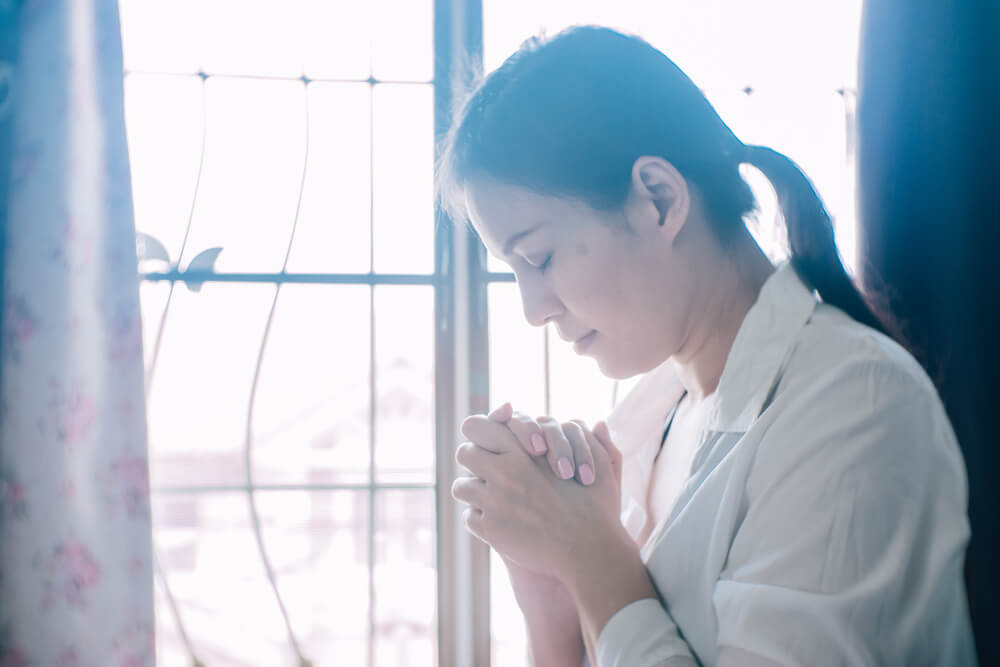As stay-at-home orders continue, Americans across the country are doing their part to keep themselves physically healthy during this pandemic. But it is also important to take steps to keep ourselves mentally healthy. Being quarantined and socially distanced for months can trigger or exacerbate depression, loneliness, and other mental health issues, and it is important to recognize this and seek help when needed. But how can our faith play a role in our mental health during this pandemic?
Tommy Tighe, a licensed marriage and family therapist, stopped by Trending with Timmerie recently to discuss mental health, and shared his own experience of how his faith life and faith community helped him get through some dark personal times.
In 2016, Tommy and his wife Karen found out that their unborn son, Luke, had not developed kidneys in utero, and would be unable to survive long outside the womb. Luke died shortly after his birth, and Tommy shared that after Luke’s death he had a season of profound grief and depression. He said that he found it difficult to even pray during this time, but the prayers of his community helped carry him through.
He said, “Being able to reach out to people and say, ‘I can’t do it. I need people to pray for me.’ And then seeing that kind of power come. All of a sudden I could [pray], and I was praying a rosary on the way to work. It was really a sign of the body of Christ and how connected we all are.”

Our faith is not an individualistic faith. And whether our battles are with mental health, a physical illness, or a particular sin, we should always be ready to let others help us when we need it. The Book of Exodus illustrates this well, when we read of the Israelites doing battle with Amalek. During the battle, as long as Moses raised his hands that held the staff of God the Israelites had the better of the fight. But when Moses rested his hands, Amalek had the better of the fight.
Scripture tells us, “Moses’ hands, however, grew tired; so they took a rock and put it under him and he sat on it. Meanwhile Aaron and Hur supported his hands, one on one side and one on the other, so that his hands remained steady until sunset.”
In our own battles with depression, anxiety, or loneliness we can often feel like Moses – too tired to continue the fight. That’s why it is important to have people like Aaron and Hur to battle with us and support us when we need it. And why it’s important to be an Aaron or Hur for those in our lives who are struggling with mental health issues.
Tommy said, “I think the Catholic faith is really the faith that kind of embodies that whole fight, because we’re so incarnational. We see that God mediates his healing through other people. Through therapists, or doctors, family members and friends, and through priests. And Jesus Christ, of course.”
“So I think that our faith really points us in that direction. That it’s not really about just me and Jesus, it’s about the body of Christ and the community of believers. All of us together trying to get each other to heaven and walk with each other through this dark suffering while we’re here on Earth.”
Tommy also shared that he has found great solace turning to the Mother of God in his grief. He said, “I found a lot of solace in praying the Seven Sorrows Rosary, or the Survivor Rosary, which is a rosary that focuses on the seven sorrows of Mary. And it really helped because, for me, Mary went from the top of all saints, the Queen of Heaven and Earth, and kind of untouchable. And then she became so much more my close companion, because we walked the same journey.”
“And I think that was really powerful in terms of my faith, because I realize that when we say, ‘Why me? I’m trying to be holy and you’re permitting these bad things’ we’re acting as if Jesus and Mary didn’t show us what the Catholic life is really about. It’s about going through suffering and keeping our eyes on what it’s about, and why we’re going through it, and growing closer to God through it.”
Learn more about mental health during quaratine by listening to the full conversation with Tommy Tighe below. And tune-in to Trending with Timmerie weekdays at 6:00 p.m. Central on Relevant Radio® and the Relevant Radio App.
Podcast: Play in new window | Download
Subscribe: RSS


